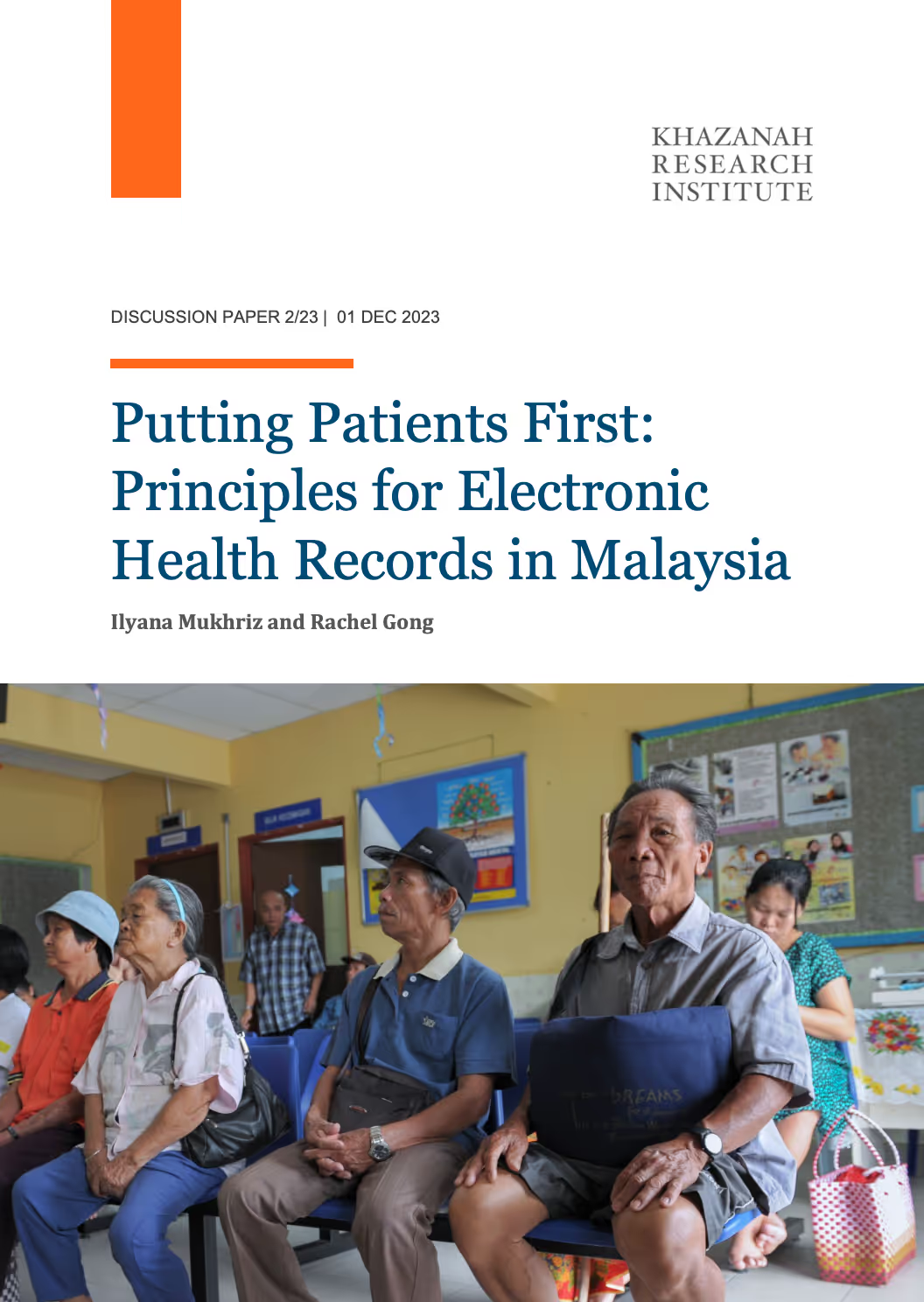
Malaysia’s government aspires for the nation to be digitally-driven and this encompasses a goal of improving healthcare delivery through digitalisation. A digital health records system is the bedrock for future healthcare and well-being management. Despite active planning of digitalisation initiatives for the Malaysian public healthcare sector, implementation has stagnated. Issues cited include slow uptake, lack of follow-through and reluctant budgetary commitment. As of 2020, only 25% of 146 public hospitals and 9% of 1,090 public clinics had been digitalised. A patient-centric system that gives patients control over their health data can empower them to manage their health better. Patient empowerment is especially important given increasing digital adoption and an aging society. Encouraging health literacy and self-care will also further MOH’s efforts to have a lifetime health record to ensure better healthcare delivery and patient outcomes. A comparative analysis between Malaysia and four case study countries (Australia, China, Singapore and the United States of America) with varying healthcare delivery and digital health records systems highlights three specific areas for policy consideration





.avif)









